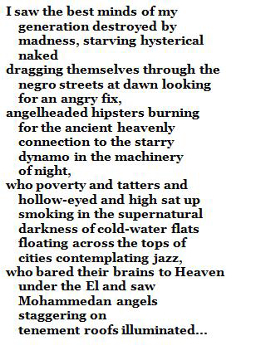(1).jpg)
Belgrade has straddled the border between East and West since the 4th century, when the Roman Empire was torn apart by a schism that would last over a thousand years. Today the city’s fume-choked streets are bearing witness to another clash between Europe and Asia, as two opposing visions of Serbia’s future are placed before a volatile electorate. The outcome will have decisive ramifications, both local and global.
This, at least, is the angle taken by much of the Western media as Serbia goes to the polls this Sunday to elect its next president. Incumbent Boris Tadic, a pro-Western moderate feted as a progressive democrat by the West, is facing the hardline Serb nationalist Tomislav Nikolic, who is standing in for his party’s official leader, currently on trial for alleged war crimes in The Hague. Overshadowing the two contenders is the question of Kosovo’s independence, due to be announced unilaterally by the territory’s ethnic Albanian leadership within the next few weeks. Tadic preaches moderation and negotiation on this sensitive topic; Nikolic has promised not to “sit back” and let it happen and has threatened military intervention. No less important is the question of European integration, which has led to the EU and the USA virtually bankrolling Tadic’s campaign.
.JPG)
Take Alexandra Bozic. Four days before the poll, she found herself on the fringes of one of Tadic’s meticulously-planned, dramatically-executed public meetings at the heart of the city centre. A 19 year old, English-speaking student who dreams of hassle-free trips to Paris and London, she is the archetypal Democratic Party supporter, rejecting the narrow nationalism of the past and embracing a peaceful, neo-liberal Western future. But Alexandra hadn’t planned to be at this rally; she stumbled across it whilst shopping for shoes and is slightly nonplussed by the thunderous speakers and garish floodlights. “I don’t support anyone,” she declared stubbornly, wrinkling her nose at the East vs. West paradigm that is being tirelessly imposed on this country. “I will vote for Tadic on Sunday because I want easy travel to Europe, nothing more.” Those nearby echoed her apathy; Tadic is seen by many young people as tired and corrupt, but he represents their passport to modernity. Hence this reluctant band of democrats will back him on Sunday, not out of any deep-seated alignment with West over East, but rather out of self-centred necessity.
The same contradictions were on display a few miles across town, at the Belgrade Arena. In the city’s biggest venue, the Serbian Radical Party pulled out all the stops at the Nikolic rally. With folksongs celebrating Serbian Kosovo, thunderous chants of “Serbia, Serbia,” shaved heads aplenty, and beer flowing freely, it is easy to dismiss Nikolic support as a backwards-looking longing for ‘Greater Serbia’. Yet for many people present, Nikolic is first and foremost the non-Tadic: a promise of change and a break with a president perceived as crooked and unconcerned by the economic troubles of the ‘common man’. “Who doesn’t,” in the words of one anti-Tadic demonstrator “care about the Serbian woman, who is reduced to begging?” Some, like 54 year old, small-time entrepreneur Boris Ristic, stressed their admiration for Europe and their opposition to Milosevic, only to declare their support for Nikolic as the lesser of two evils.
Beyond the cynics and the sceptics, gloriously sandwiched in the middle of this bitter contest, lie the opportunists – as baffled by the militia-cap sporting Nikolic supporters and the bohemian-looking Tadic enthusiasts as they are excited by the financial possibilities these figures represent. One such character patrolled the corridors of the Belgrade Arena, flogging large clocks adorned with the hand-painted likeness of Nikolic set against the immutable borders of Greater Serbia. When these correspondents enquired as to whether the hands of the clock – set dramatically to five minutes before midnight – were a symbolic expression of the final hour of Serbian consciousness as election day looms, they were assured that, on the contrary, the batteries on the clock had merely run out and would be replaced shortly.
A far cry from the stereotypes proffered by many observers of this election, the real choice lies in the hands of the largely apathetic majority, concerned not with a fundamental struggle between East and West, but rather with the day to day minutiae of jobs and travel. The people of Belgrade are not divided into two irreconcilable camps; a vote for Nikolic is not a rejection of the West, nor is a vote for Tadic an unreserved endorsement of ‘modern’ European values. Whilst the rest of the world looks on, Serbians see this as primarily a vote about domestic politics; mundane or not, the world will have to live with the result.
By Jack and Josh.
.JPG)
(1).jpg)
.JPG)
.JPG)
(1).jpg)
.jpg)

1 comment:
How is Sofie? Would love to hear more! Just a few words and not so much inspiration! Love Mu, Fips and thumi
Post a Comment